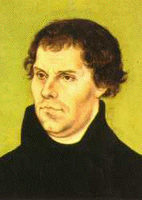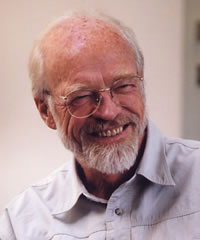Hell hath no fury like a former seminarian. From Hollywood superstars to adulterous dilettantes, several seminary dropouts have managed to find success in the secular world. But they’ve also strayed from the Christian path - whether it was for the teachings of L. Ron Hubbard or simply to reign terror over a Communist nation. Here’s a sampling of the finest in almost-clergy.

1. Tom Cruise (1962 - )
In 1976, a deeply religious child named Thomas Cruise Mapother IV enrolled in a Franciscan seminary in New Jersey. Within five years, he’d ditched the church, dropped the Mapother, and landed a part in Endless Love. And in spite of his diminutive height (5 feet 7 inches) the man who might have been a priest became one of Hollywood’s top leading men. Around 1986, though, he abandoned Catholicism altogether, embracing the Church of Scientology, which he once credited with helping him overcome dyslexia. Wildly popular with celebrities, Scientology is the path of choice to "clarity" for everyone from John Travolta to the guy who played Parker Lewis in Parker Lewis Can’t Lose. Incidentally, Scientology does have ministers - but while Cruise remains an active member and apologist for the group, he has yet to seek ordination.

2. Casanova (1725 - 1798)
Everyone’s favorite 18th-century libertine began his scandalous escapades at the seminary of St. Cyprion, from which he was expelled under cloudy circumstances (we’re guessing he slept with someone). And as you well know, his post seminary life was as ungodly as it gets. By the age of 30 he was sentenced to prison for engaging in "magic," but he escaped after only a year to Paris. There, he made a fortune by introducing the lottery to France. But before settling down to write his ribald, self-aggrandizing autobiography, Casanova was expelled from more European countries than most of us ever visit. Along the way, he slept with tons of women, dueled with many of their husbands, and generally sinned his was to the top of European culture, befriending such figures as Madame du Pompadour and Jean-Jacques Rousseau along the way.

3. Joseph Stalin (1879 - 1953)
Lasting longer than the vast majority of divinity school dropouts, noted mass murderer Joseph Stalin studied at the Georgian Orthodox seminary in Tiflis (now Tbilisi) for five years, between 1894 and 1899. He left the seminary either because of poor health (his mom’s story) or revolutionary activity (Stalin’s story). Either way, Stalin clearly didn’t take much of what he learned to heart (assuming he had one). After he became the Soviet leader in 1922, he was responsible for the deaths of thousands of religious leaders, and Stalin did more than any other premier to eliminate the role of Christianity in Soviet life. But his seminary wasn’t exactly a study in Christian love, either. Prior to Stalin’s arrival, a rector was murdered there - possibly by unruly seminarians.

4. Michael Moore (1954 - )
Controversial documentary filmmaker Michael Moore began studying at a seminary in his hometown of Flint, Michigan, as an eight grader in 1967. Brought up a devout Catholic, Moore aspired to a career as a priest, but he left the seminary the next year for thoroughly secular reasons. When the Detroit Tigers made it to the World Series in 1968, the seminary refused to let him watch the games - so he quit. Before his successful filmmaking career, in fact, Moore was something of a serial dropout. He dropped out of the University of Michigan because he arrived at the school one morning and couldn’t find a parking place, and he once got a job at an automobile factory in Flint - but called in sick on his first day and never returned.

5. Al Gore (1948 - )
Believe it or not, the winner of the popular vote in the U.S. presidential election of 2000 was actually a devoutly religious divinity school dropout. It’s true! Al Gore graduated from Harvard cum laude in 1969 (although he earned several Cs and a D during his time in Cambridge), but he’d always been interested in theology, so he decided to continue his studies. It’s no wonder, then that he enrolled in Vanderbilt’s prestigious divinity school, where, over the course of three semesters, he failed five of his eight classes! Gore’s allies claimed that the birth of his first child and his duties as a reporter at the Tennessean newspaper kept him from his studies. For the record, though, Gore also later dropped out of Vanderbilt’s law school (in 1976), but this time for a truly higher purpose - to run for Congress.

















































